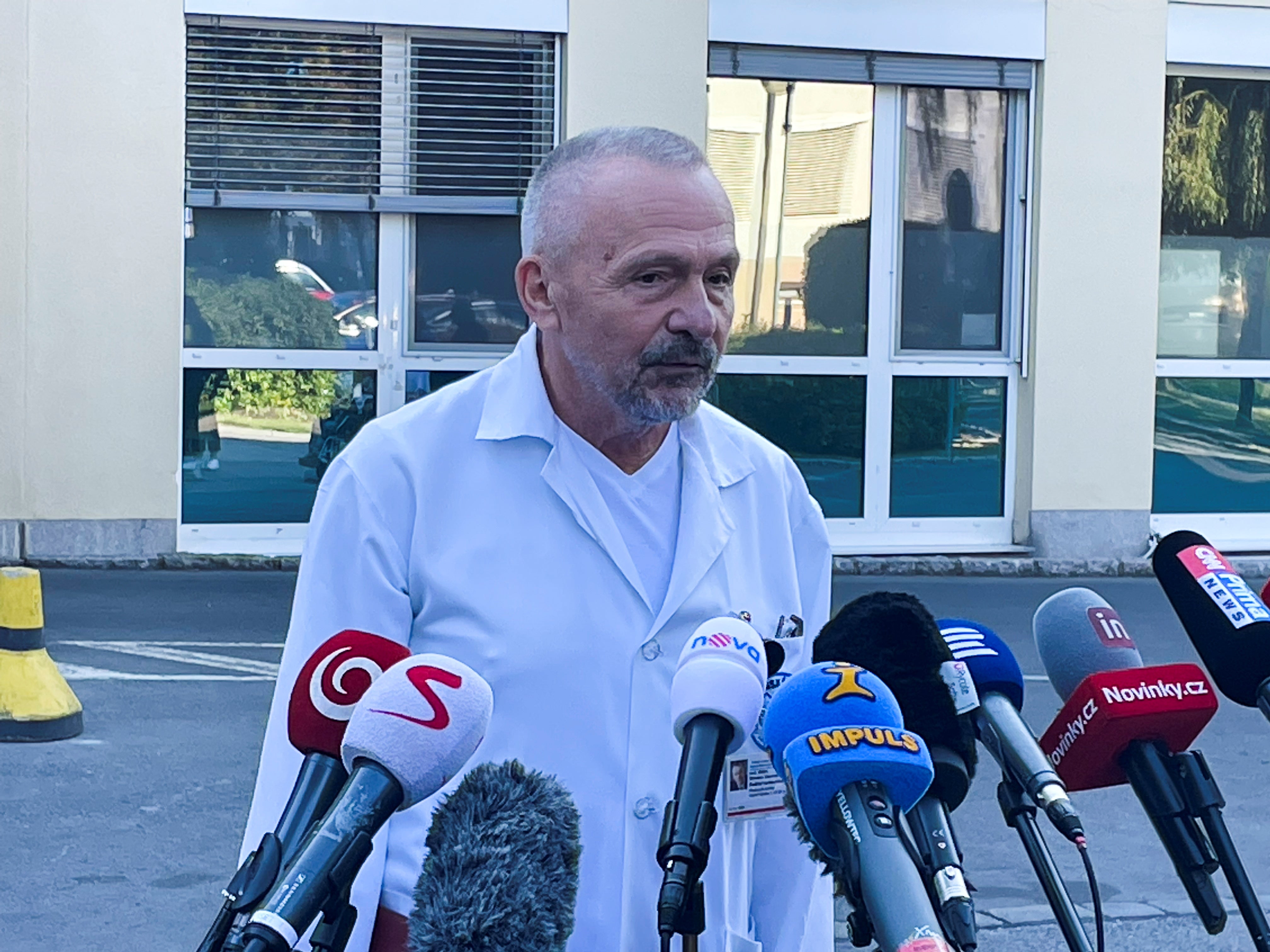Czech crisis looms as ailing president leaves country in political limbo
The political fate of the country remains unsure despite elections earlier this month, and could rest on the health of an ill president, reports William Nattrass in Prague

Czech Republic President Milos Zeman faces being stripped of his powers while lying incapacitated in a Prague hospital as the country remains in political limbo, almost a fortnight after elections.
The details of Zeman’s medical diagnosis remain unknown, but doctors say his condition leaves him unable to perform his presidential functions, which includes helping secure the formation of a new government after elections on 8 and 9 October. It is unknown when – or if – Zeman, 77, will be able to return to work.
The state of his health had been shrouded in mystery since he was hospitalised over a week ago. His spokespeople evaded questions and lambasted the “hypocrisy” of those trying to find out whether ill-health left him unable to perform his post-election role.
Doctors had refused to break medical confidentiality laws but when the Czech Senate, the upper house of the nation’s parliament, turned to the hospital for answers, they produced a summary of the president’s condition. The Senate disclosed only the most crucial news: that Zeman can no longer perform the duties of his office.
Unease had been growing about the secrecy surrounding Zeman’s hospitalisation but confirmation of his incapacitation has, nonetheless, sent shockwaves through Czech politics.
A constitutional crisis is brewing. The current lower house of parliament will be dissolved on Thursday but its consent is required for Zeman to be stripped of his powers.
With the next parliament not set to meet until 8 November, the highest functions in the land are likely to be held for nearly three weeks by a man declared by his own doctors unfit to wield them.
“If Article 66 of the constitution is not triggered, the president will continue to hold all presidential functions, despite his medical incapacitation,” David Kosar, head of the department of constitutional law at the Law Faculty of Masaryk University, told The Independent.
“In theory, the president could be incapacitated earlier than 8 November, by the current Chamber of Deputies, but this would be difficult to orchestrate politically, constitutionally and ethically. There is a procedure in place for this scenario but many aspects of it are unclear as it has never happened before. There are lots of questions and tricky issues, which would be very difficult to resolve by this Thursday.”
The situation is fraught with uncertainty, made even worse by controversy over a document calling the first session of the new parliament, which was signed by Zeman while in hospital.
Immediately after the document was made public, an anonymous criminal complaint was lodged claiming that the president’s signature had been forged. Such allegations may seem far-fetched but there are concerns that Zeman’s actions are being directed by others at a crucial time for the country.
“While the president is still popular among the public, the aides surrounding him are not trusted. There is a strong sense that they have become a law unto themselves,” said Kosar.
Prime minister Andrej Babis has called for the resignation of the head of the presidential office, for his role in getting the controversial document signed at a time when the president was apparently unfit to exercise his duties.
After an election in which Babis was narrowly beaten by opposition coalitions, Zeman’s presidential role involves accepting the resignation of the current government and agreeing to the formation of the new regime.
A motion, known as Article 66, will be considered by the Chamber of Deputies in early November, and could make the president’s duties pass to the new Speaker of the House.
Zeman had been expected to favour Babis in possible attempts to remain in power, possibly in a minority government. Indeed, Babis claimed that Zeman promised him two initial attempts to form a government despite his election defeat.
Babis said he had already decided not to take up the president’s offer possibly as a display of statesmanship with a view to a possible presidential run when Zeman’s current term expires in 2023.
Such considerations may also dissuade the controversial billionaire, under investigation by Czech police over alleged EU subsidy fraud and the subject of revelations in the Pandora Papers earlier this month, from exercising presidential powers which will pass to him before a new government is confirmed.
“Some commentators have insinuated that Babis might be tempted to explore the possibility of a self-amnesty, as this power would theoretically be open to him under Article 66,” said Kosar.
“But legally this would be a very controversial move, and it would also be politically unwise, as Babis might want to run for the president or lead his party successfully again in the next elections,” he added.
Zeman’s hospitalisation follows a lifetime of heavy drinking and smoking. The president suffers from diabetes and his current hospitalisation follows an eight-day stint under medical care in September.
“There is a hot debate between constitutional scholars as to how detailed the chamber’s decision to strip the president of his powers must be. The most important question concerns whether or not the resolution needs to specify the precise period of time for which the president is incapacitated, and for what reasons. I believe it must but Czech scholars are divided on the issue,” said Kosar.
Zeman’s hospitalisation means the new era for Czech politics ushered in by this month’s election is likely to see more changes than just in the nation’s government.






Join our commenting forum
Join thought-provoking conversations, follow other Independent readers and see their replies
Comments